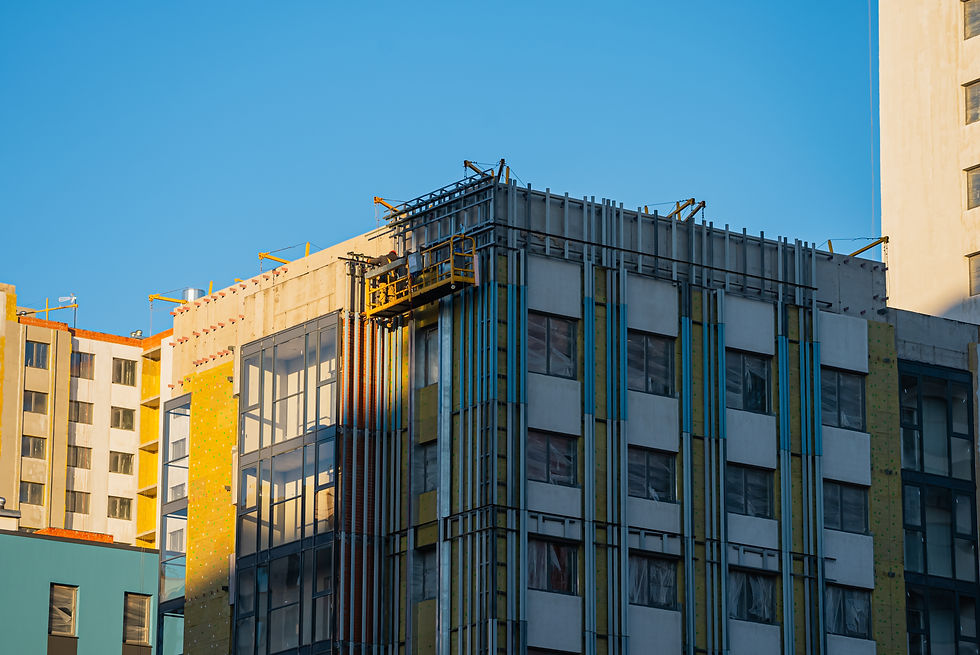Five remarkable New Yorkers
- Aaron Kinnari

- Sep 15, 2025
- 4 min read
Updated: Jan 3
With stories of division and devastation dominating the headlines all too often, it’s easy to forget that in this city and across the country, there are examples of people who work tirelessly to improve the lives of people in their communities and for generations to come.
Highlighting these everyday heroes is at the core of The David Prize, an organization that celebrates five New Yorkers each year who champion ideas for extraordinary change. With significant public recognition and an award of $200,000, no strings attached, The David Prize helps propel these change-makers' work and inspire others to act.
This week, we're thrilled to share the stories of this year’s remarkable winners. You can see a preview of their work and learn more about their work at the links below.
Additionally, you can directly get involved in this outstanding work in two ways. First, The David Prize is now accepting nominations for next year. If you know an incredible New York City visionary, you can nominate them here.
Secondly, The David Prize is co-hosting See NYC, which will bring together 150 New Yorkers shaping the future for a three-day immersive experience with partners across the city. I'm planning to join, and a few spots are still open. If interested, you can learn more and apply here.

Rana Abdelhamid is building a safer, stronger New York for Muslim and immigrant women.
Born to Egyptian immigrant parents, Rana Abdelhamid’s work is deeply rooted in her commitment to building safety for marginalized communities, particularly survivors of gender-based and hate-based violence. Motivated by her own experience of being attacked at 16 for wearing a hijab, Rana started her Astoria-based grassroots organization Malikah. Armed with a black belt in karate, she created a multi-faceted space that offers self-defense, bystander training, and trauma-informed healing to over 20,000 people. Known for her leadership and grassroots activism, Rana is often referenced as the “Mayor of Queens” by her neighbors.
Drawing inspiration from successful “Friends of” models, Jenny Bright is creating Friends of the Subway.
New York City is one of the greatest places for economic and social mobility in the world. In it, the most entry-level jobs of any US city - over 1.3 million - are available to nearly 8.5 million New Yorkers, who represent the most diverse major city in the world. The positive relationship between upward mobility and public transportation in particular is well-documented, as are the significant positive environmental impacts of public transit. It is no doubt that one of the most extensive public transit systems in the world is to be cherished for the 1 billion people who ride the subway every year. And, yet, there are opportunities for improvement palpable to New Yorkers today.
Barry Cooper fosters a healing space for young men of color in Bed-Stuy through space, connection, and care.
Growing up in Bed-Stuy, Brooklyn, Barry Cooper, known as “Coach Coop,” understood that young men of color are often viewed as hypermasculine and dangerous. He witnessed firsthand the lack of welcoming environments they have access to. His early experiences as a neighborhood barber helped him recognize the importance of creating safe, affirming spaces where boys could explore who they are. This realization sparked a lifelong commitment to transforming the futures of young men in his community. Barry went on to become a dean at Eagle Academy and eventually the founder of the B.R.O. (Building Real Opportunities) Experience Foundation.
Colby Xzavier King is building economic independence for NYC’s queer Kiki ballroom talent.
Colby King discovered his chosen family in New York’s Kiki ballroom scene, a thriving subculture in New York City. Kiki traces its origins to youth-led offshoots of the Harlem drag ball tradition, which was born from Black and Latino queer communities seeking creative refuge and chosen family. From the storied ballroom houses of the 1960s and ’70s, the Kiki scene emerged in the 2000s as a more accessible, youth-centered environment. Often hosted through LGBTQ+ health outreach centers, Kiki events (“kikis”) became vital spaces for young queer people of color to practice voguing and other categories, build kinship, and access emotional and health support.
Jhody Devon Polk is working to expand legal education access to all New Yorkers — especially those who have been historically excluded.
Jhody Polk’s journey to becoming a leading advocate for legal empowerment began behind bars, where she practiced law as a jailhouse lawyer in Florida’s prison system. Despite never holding a formal law degree, Jhody provided critical legal support to other incarcerated individuals. While many incarcerated people are left without legal representation after sentencing, Jhody became part of an underground network fighting for justice, dignity, and post-conviction freedom. Now based in New York, Jhody founded the Jailhouse Lawyer Initiative (JLI) to ensure that formerly incarcerated individuals have the knowledge to navigate and shape the legal system once they return home.



Comments